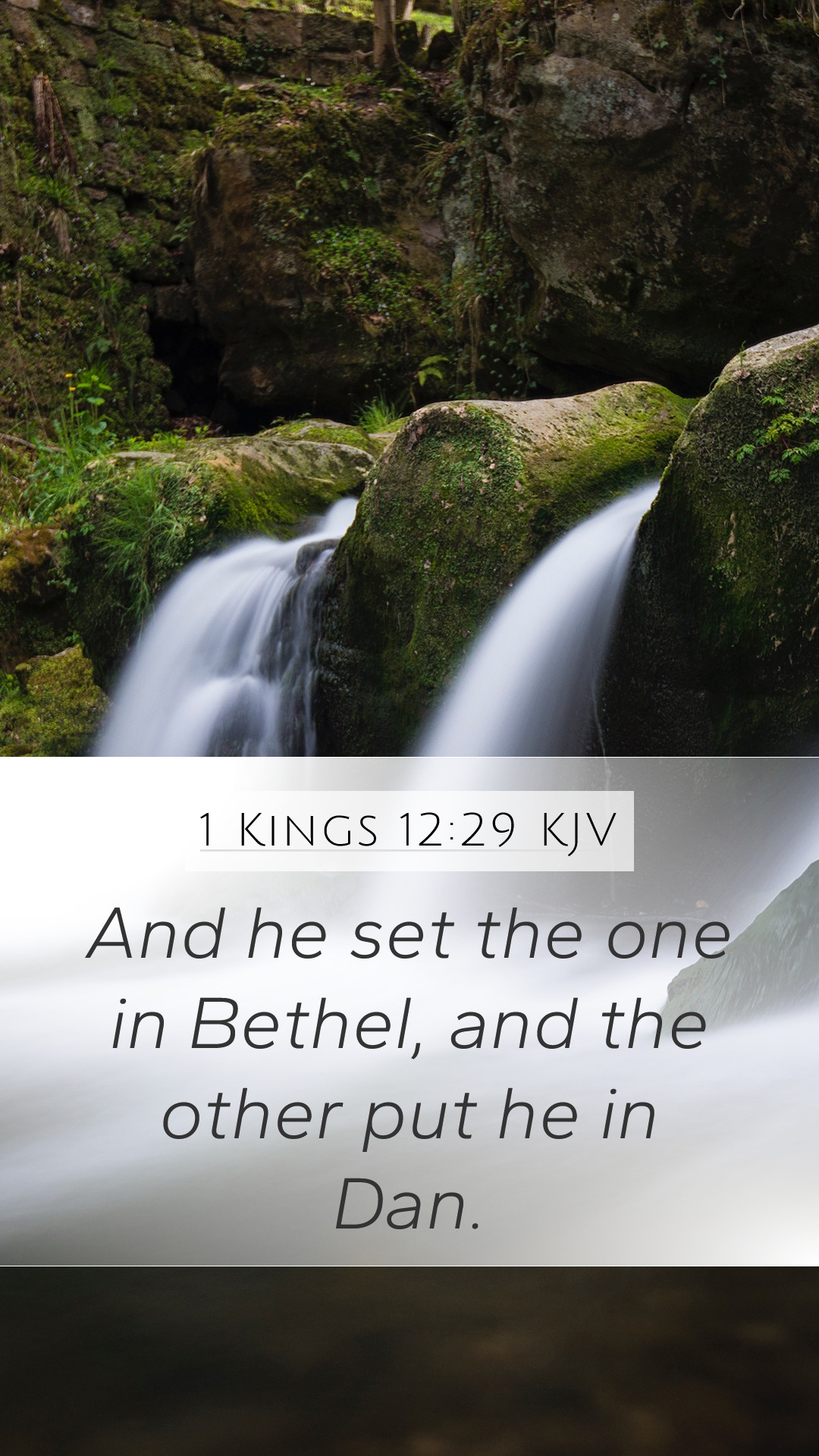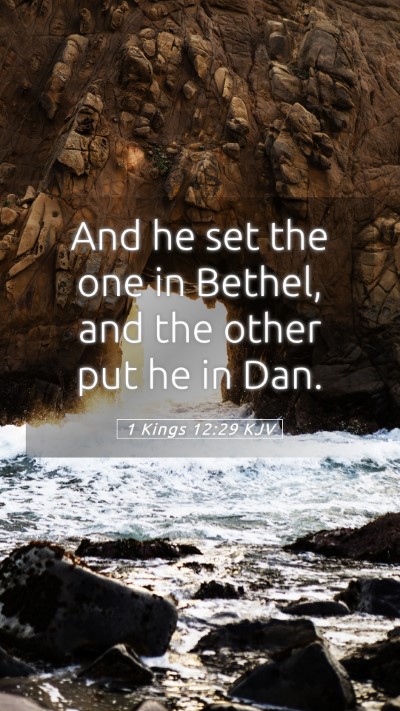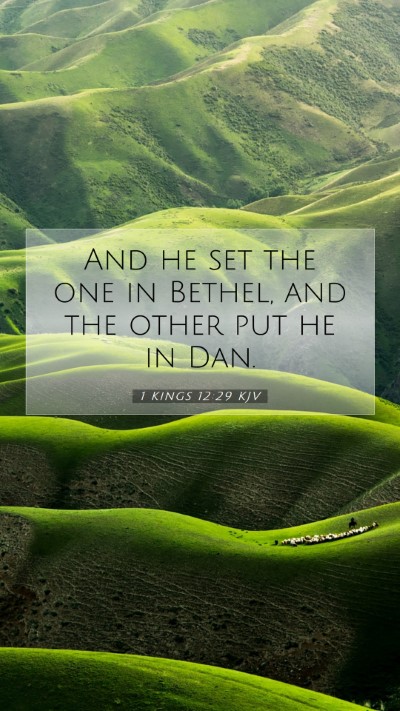Understanding 1 Kings 12:29: An In-Depth Bible Verse Commentary
In 1 Kings 12:29, we encounter a pivotal moment in the history of Israel where Jeroboam, the first king of the northern kingdom, establishes two golden calves for worship.
This verse is critical for understanding the consequences of idolatry and the impact of leadership decisions on faith and morality within the community.
Verse Text
"And he set the one in Bethel, and the other put he in Dan."
Historical Context
The background of this passage is steeped in the division of the kingdom of Israel. Following King Solomon's reign, the nation was split into two separate kingdoms: the northern kingdom of Israel and the southern kingdom of Judah.
Jeroboam's decision to establish these centers of worship was partly a political strategy meant to prevent the people from returning to Jerusalem for worship, which could undermine his rule.
Commentary Insights
- Matthew Henry's Commentary: Matthew Henry highlights the folly of Jeroboam's actions, noting that he sought to establish a form of worship to maintain his throne but ultimately led the people into sin.
He emphasizes that false worship is a grave offense to God and warns against prioritizing political motivations over spiritual integrity.
- Albert Barnes' Notes: Barnes expounds on the significance of the locations chosen—Bethel and Dan—as sites of historical religious importance.
He notes that Jeroboam's decision reflects a tragic misunderstanding of the nature of true worship and suggests that his fear of losing power led him to implement corrupt practices.
- Adam Clarke's Commentary: Clarke provides insight into the symbolic nature of the calves, representing a return to pagan practices reminiscent of the Exodus. He draws parallels to the priests of old, contrasting them with the corrupt leadership in place during Jeroboam's rule.
Thematic Analysis
The primary themes emerging from 1 Kings 12:29 include:
- Idolatry: The verse illustrates the dangers of turning away from God to worship created things. Jeroboam's golden calves symbolize a betrayal of faith.
- Leadership and Responsibility: By setting up these places of worship, Jeroboam neglected his duty to lead the people toward the true God, demonstrating how leaders can shape the spiritual direction of their followers.
- Consequences of Sin: The decisions made by Jeroboam led to apostasy and division among the people, showcasing the long-term effects of sin.
Application to Daily Life
This verse encourages modern believers to reflect on their own practices of worship. Are there any “golden calves” in our lives that distract us from the true essence of our faith?
Moreover, it poses an essential question regarding the influence of leadership within the church and community.
How do our leaders guide us in our spiritual journeys, and what responsibilities do we hold?
Cross References
- Exodus 32:4 - The incident of the golden calf at Mount Sinai.
- 1 Kings 12:28 - Jeroboam's rationale for creating the idols.
- 2 Kings 10:29 - The continuity of idolatry in Israel.
Conclusion
The interpretation of 1 Kings 12:29 reveals deeper lessons about faithfulness to God, the pitfalls of leadership, and the nature of worship.
As readers engage with this verse, they can gain valuable insights for both individual faith and communal worship, emphasizing the need for spiritual integrity in all aspects of life.


